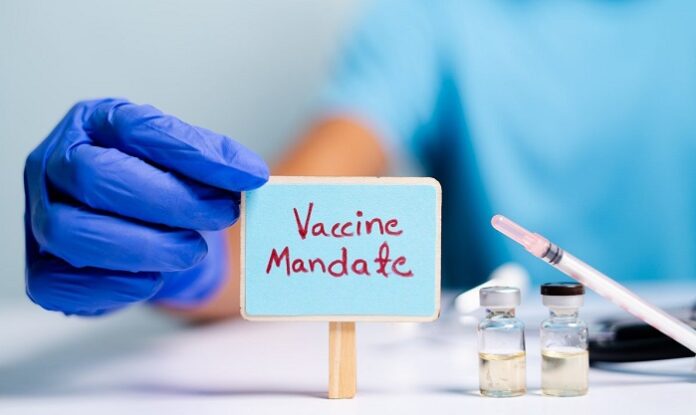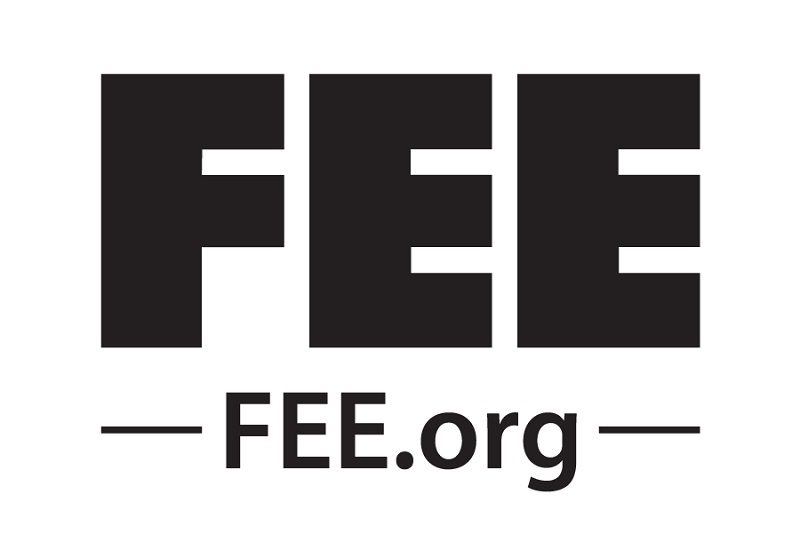With President Biden’s federal vaccine mandate and local government employment mandates looming, the future of countless workers is up in the air. Yet new research undercuts the stated justification for these mandates.
Big-government politicians claim that vaccine mandates are necessary because unvaccinated individuals are a danger to not just themselves but society. They argue that choosing to remain unvaccinated exacerbates the spread of the deadly virus. But according to a new study published in the Lancet, this doesn’t appear to be true.
“People inoculated against Covid-19 are just as likely to spread the delta variant of the virus to contacts in their household as those who haven’t had shots, according to new research,” Bloomberg reports. “In a yearlong study of 621 people in the U.K. with mild Covid-19, scientists found that their peak viral load was similar regardless of vaccination status, according to a paper published Thursday in The Lancet Infectious Diseases medical journal.”
“The analysis also found that 25% of vaccinated household contacts still contracted the disease from an index case, while 38% of those who hadn’t had shots became infected,” the report continues. “The results go some way toward explaining why the delta variant is so infectious even in nations with successful vaccine rollouts, and why the unvaccinated can’t assume they are protected because others have had shots.”
The study does stress that vaccination has a clear personal health benefit, drastically reducing the chance of serious illness or death once infected with COVID-19.
“Those who were inoculated cleared the virus more quickly and had milder cases, while unvaccinated household members were more likely to suffer from severe disease and hospitalization,” Bloomberg summarizes. Yet the protection did not extend to the elimination of transmission.
“Our findings show that vaccination alone is not enough to prevent people from being infected with the delta variant and spreading it in household settings,” study co-author Ajit Lalvani said.
We should be clear about the uncertainty in this conversation. We don’t truly know how much, if at all, the vaccines reduce transmission of the disease; different research has found different results for different variants and different vaccines. Yet this uncertainty itself renders much of the stated interpersonal benefit from vaccine mandates purely speculative.
The vaccines do appear to highly reduce the chance of hospitalization or death from COVID-19. That’s why I chose to take the COVID vaccine and have encouraged several people in my life who are at risk of COVID to do so. But the fact remains that the main benefit of COVID vaccination is personal, not societal.
This is why Stanford epidemiologist Jay Bhattacharya calls the development of these vaccines “a wonderful achievement” that has “protected so many people from severe outcomes of the disease,” but ultimately concludes that vaccination is a matter of personal health—not public health.
Bhattacharya and experts like him are right. As evidenced by “breakthrough cases” and research like this new study, COVID vaccines clearly do not prevent transmission of the virus. The main benefits are for individuals themselves. Proponents of big government mandates have no compelling case for overriding individual choice on fundamental questions of bodily autonomy.
WATCH: New Biden Vax Mandate Doesn’t Make ANY Sense (Here’s Why)
Like this story? Click here to sign up for the FEE Daily and get free-market news and analysis like this from Policy Correspondent Brad Polumbo in your inbox every weekday.
Brad Polumbo
Brad Polumbo (@Brad_Polumbo) is a libertarian-conservative journalist and Policy Correspondent at the Foundation for Economic Education.
This article was originally published on FEE.org. Read the original article.
FEE’s mission is to inspire, educate, and connect future leaders with the economic, ethical, and legal principles of a free society. These principles include: individual liberty, free-market economics, entrepreneurship, private property, high moral character, and limited government.




















